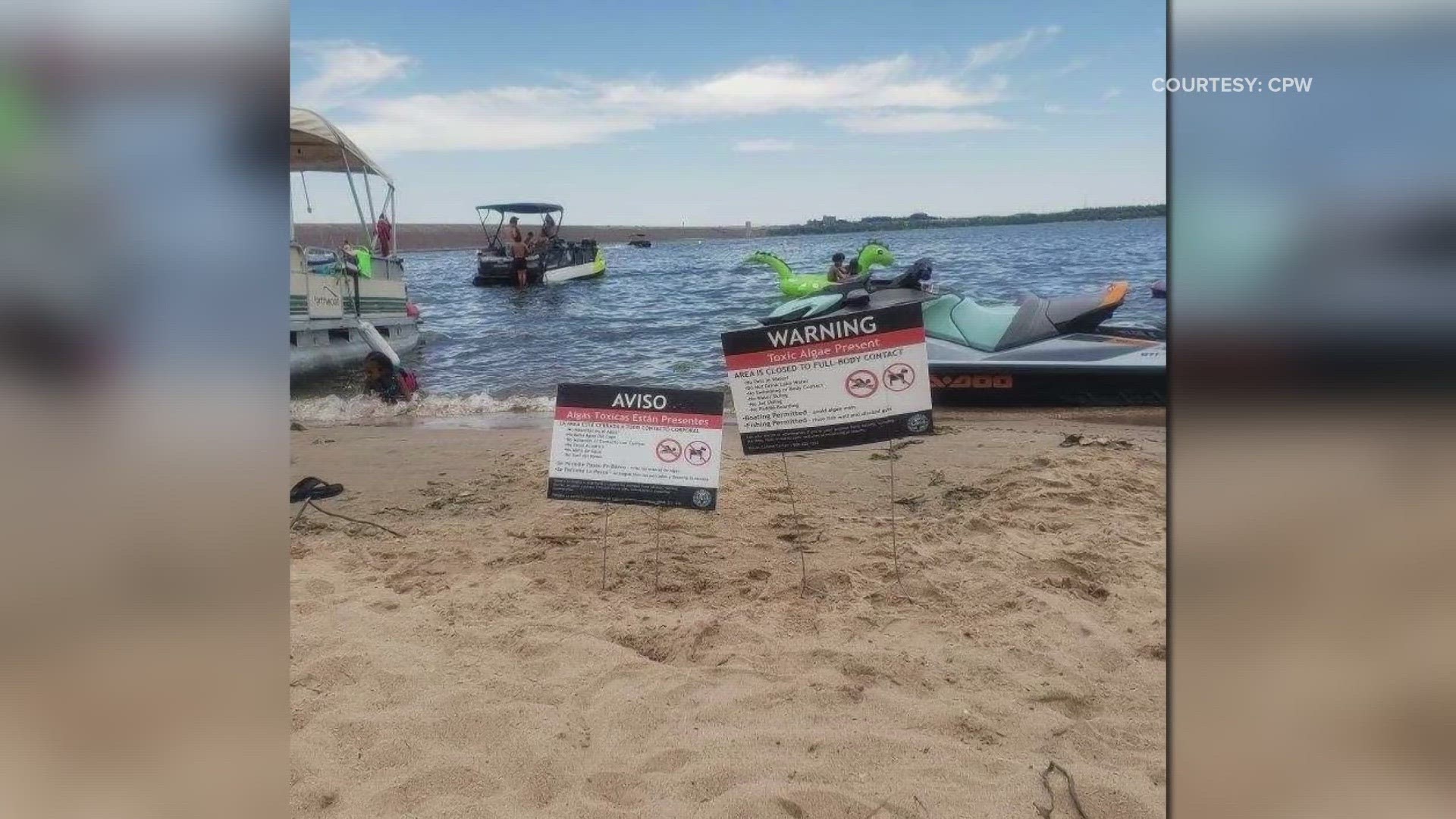AURORA, Colo. — Portions of Cherry Creek Reservoir are closed to swimming after tests found an elevated presence of blue-green algae.
Colorado Parks and Wildlife said Sunday that swimming, paddleboarding and wading will not be allowed near the marina and West Shades area. Signs have been posted at the closure areas to inform visitors of the potential dangers.
"All skin-to-water contact should be avoided for humans and pets,” Cherry Creek Operations Manager Larry Butterfield said in a news release. “Contact with the water could cause minor skin rashes and make pets ill. Dogs need to be on-leash to keep them from drinking or playing in the bloom.”
There are no restrictions around boating or fishing, CPW said.
CPW said that according to the Colorado Department of Public Health and Environment, symptoms of toxic algae exposure include skin irritation, fever, diarrhea, headache, muscle and joint pain, and liver damage. They said anyone who suspects they have been exposed should contact a healthcare provider or poison control.
CPW said the threshold for water recreational closure, set by the state health department, is 8 micrograms per liter of microcystin, an algal toxin. Samples collected at Cherry Creek State Park this week showed concentrations of 10 micrograms per liter. CPW said samples will continue to be collected and tested, and the closures will remain in place until the level decreases.
Friday, CPW said they have observed algae blooms at northeastern Colorado reservoirs, including North Sterling State Park, Jackson Lake State Wildlife Area, Prewitt State Wildlife Area and Jumbo (Julesburg) State Wildlife Area.
CPW said visitors to North Sterling reservoir should check the park's Facebook page and website for the latest restrictions.
They said water recreation is not currently restricted at Prewitt, Jumbo and Jackson Lake State Wildlife Areas, but visitors should take precautions after going into the water by thoroughly washing off with fresh water afterward and not drinking the water. Dogs and other pets should not come into contact with water where toxic algae blooms may be present, they said.
SUGGESTED VIDEOS: Colorado Outdoors

